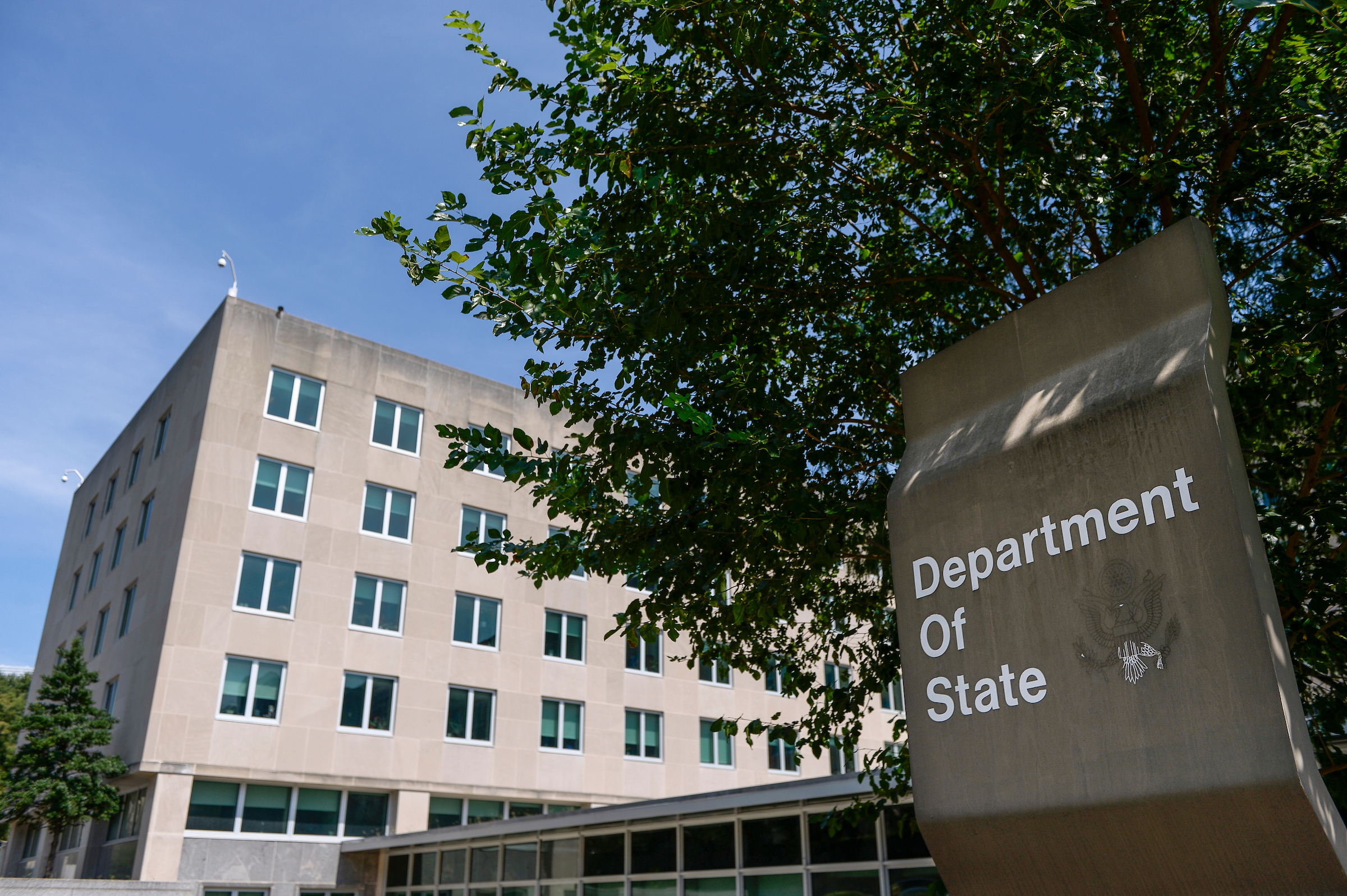Trump administration restricts U.S. travel for pregnant foreigners
A new State Department rule targets 'birth tourism,' White House says

The State Department issued a new rule Thursday that will make it more difficult for pregnant women abroad to obtain visas to the United States, an attempt to curb what the White House is calling “birth tourism.”
The department will grant visa officers more discretion to deny nonimmigrant visas to women they believe are entering the United States specifically to obtain citizenship for their child by giving birth here, a State Department spokesperson told reporters during a background briefing.
The final rule, which goes into effect Friday, primarily targets B-1 and B-2 visas granted to foreigners who want to temporarily visit the United States for medical care, tourism or business purposes. But U.S. embassies and consulates have documented trends that show an increasing number of B visa applicants whose stated purpose of travel was to give birth in the United States, the State Department spokesperson said.
The department did not provide a number of how many people with B visas have given birth in the U.S.
White House Stephanie Grisham said the new rule was “necessary to enhance public safety, national security, and the integrity of our immigration system.”
“The birth tourism industry threatens to overburden valuable hospital resources and is rife with criminal activity, as reflected in Federal prosecutions,” she said in a statement. “Closing this glaring immigration loophole will combat these endemic abuses and ultimately protect the United States from the national security risks created by this practice.”
Jeffrey Gorsky, a former State Department official who advised consular officers overseas on visa laws, called the legal justification for the rule “pretty bogus” and said it will be difficult for the government to enforce.
“Many of these women who are giving birth in the United States for purposes of getting citizenship for their child, are probably not showing up at the consular offices nine months pregnant,” he said. “Most of these women probably had their visas many months or even years beforehand.”
Dr. Sumathi Narayana, a family medicine physician based in New York, said she fears the new rule will harm pregnant visitors in urgent need of medical treatment.
“I think any delays in care that are not medically indicated are problematic and this could lead to complications in birth,” she said, adding: “This is a cruel and racist rule that violates people’s rights and it’s targeting people of color who are pregnant and potentially in a dire situation.”
But Mark Krikorian, executive director of the Center for Immigration Studies, an organization that advocates for lower immigration levels, defended the new guidelines as a reasonable security measure.
“It gives consular officers the authority to actually look into whether a woman is coming here for the right reasons or if it’s clear that they’re only coming to give birth,” he said.
Krikorian said that in addition to consular officers being able to deny pregnant women B visas, Customs and Border Protection officers at U.S. port of entries and airports should also be granted the same authority.
The Center for Immigration Studies in a report issued last month estimated that approximately 33,000 births occur each year to women who arrived in the United States on tourist visas and then left the country.
The new rule states that pregnant women seeking medical treatment in the U.S. “must demonstrate to the satisfaction of the consular officer, their arrangements for such treatment and establish their ability to pay all costs associated with such treatment.” Consular officers are being directed against asking visa applicants outright if they are pregnant or planning to become pregnant once they are in the U.S., the State Department said.





